3 things people with organized freezers never do – steer clear of these mistakes for a tidy, streamlined space
Avoid an avalanche of frozen foods and freezer-burned leftovers with this advice from the experts

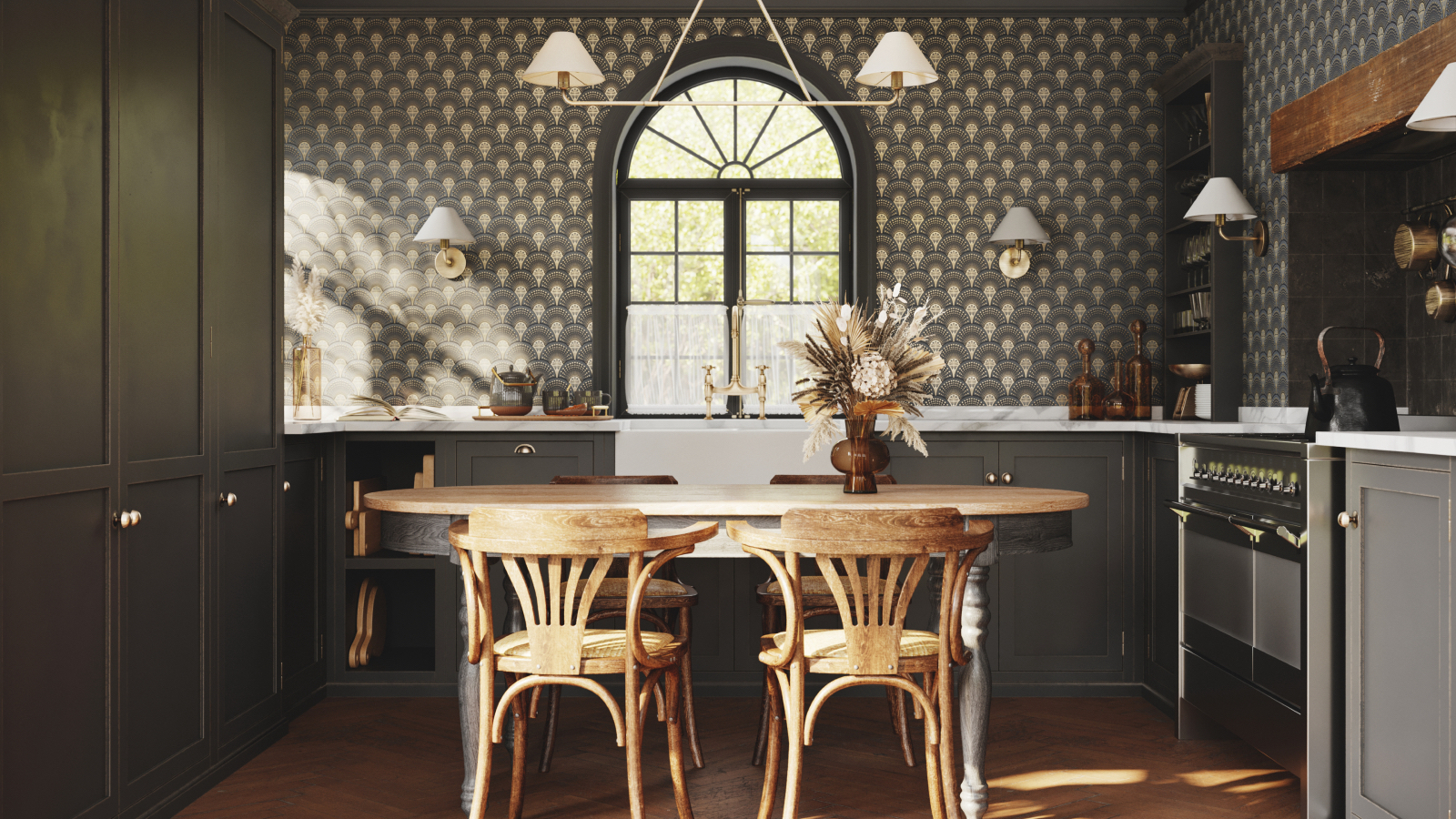
Design expertise in your inbox – from inspiring decorating ideas and beautiful celebrity homes to practical gardening advice and shopping round-ups.
You are now subscribed
Your newsletter sign-up was successful
Want to add more newsletters?

Twice a week
Homes&Gardens
The ultimate interior design resource from the world's leading experts - discover inspiring decorating ideas, color scheming know-how, garden inspiration and shopping expertise.

Once a week
In The Loop from Next In Design
Members of the Next in Design Circle will receive In the Loop, our weekly email filled with trade news, names to know and spotlight moments. Together we’re building a brighter design future.

Twice a week
Cucina
Whether you’re passionate about hosting exquisite dinners, experimenting with culinary trends, or perfecting your kitchen's design with timeless elegance and innovative functionality, this newsletter is here to inspire
Your freezer is one of the hardest working appliances in the home, particularly when it comes to reducing food waste.
But, organizing it can be difficult. From piles of frozen, miscellaneous items to leftovers ruined by freezer burn, it's all too easy for items to get lost at the back of shelves and drawers, and end up going to waste despite your best efforts.
So, what are the things people with organized freezers never do? Here, we spoke to professional organizers for their tips on how to organize a freezer, to find out what should never be done, and what to do instead.
Things people with organized freezers never do
1. Overpack their freezer

One of the most important parts of perfecting your frozen food storage is making sure you actually use the food, says professional organizer and founder of Sunlight Home Organizing Sarah Moonshine.
She advises, 'People with organized freezers never overpack their freezers or let food get buried or forgotten by sticking to the "first in, first out" rule. This keeps their food fresh and the freezer working properly.
'They also never keep random, unsealed items or let food sit for years. Instead, they have a habit of regularly decluttering to ensure everything is fresh and accessible. This prevents waste and makes meal prep easy,' and also makes cleaning a freezer easier, too. If you're unsure how to declutter a freezer, follow the same principles as decluttering a fridge – trashing anything expired in a sturdy trashbag, such as the Hefty Strong Large Trash Bags available at Amazon, and eliminating any food you aren't eating, or won't use, by passing it on to a friend, family member, or donation center.
Robyn Reynolds, founder of Organize2Harmonize, also warns against keeping food long enough to get freezer burn. 'Everything then looks the same,' she says,' making identification much more tricky.
Design expertise in your inbox – from inspiring decorating ideas and beautiful celebrity homes to practical gardening advice and shopping round-ups.
2. Keep unlabeled items

Another thing people with organized freezers, who have aced their freezer storage and organization, never do is take items out of their packaging so they're unrecognizable, says professional organizer Reynolds, or store items in plastic bags without labels.
Instead, food should be transferred into clear containers, such as the Pyrex Simply Store 5-Pack Mixed Sized Glass Food Storage Set available at Amazon, and labeled clearly with the contents and date made, with a piece of masking tape that can easily be peeled off and replaced when needed. If using Ziploc bags, use a permanent marker, such as the Sharpie Permanent Markers Set available at Amazon.
*All prices correct at time of publication.
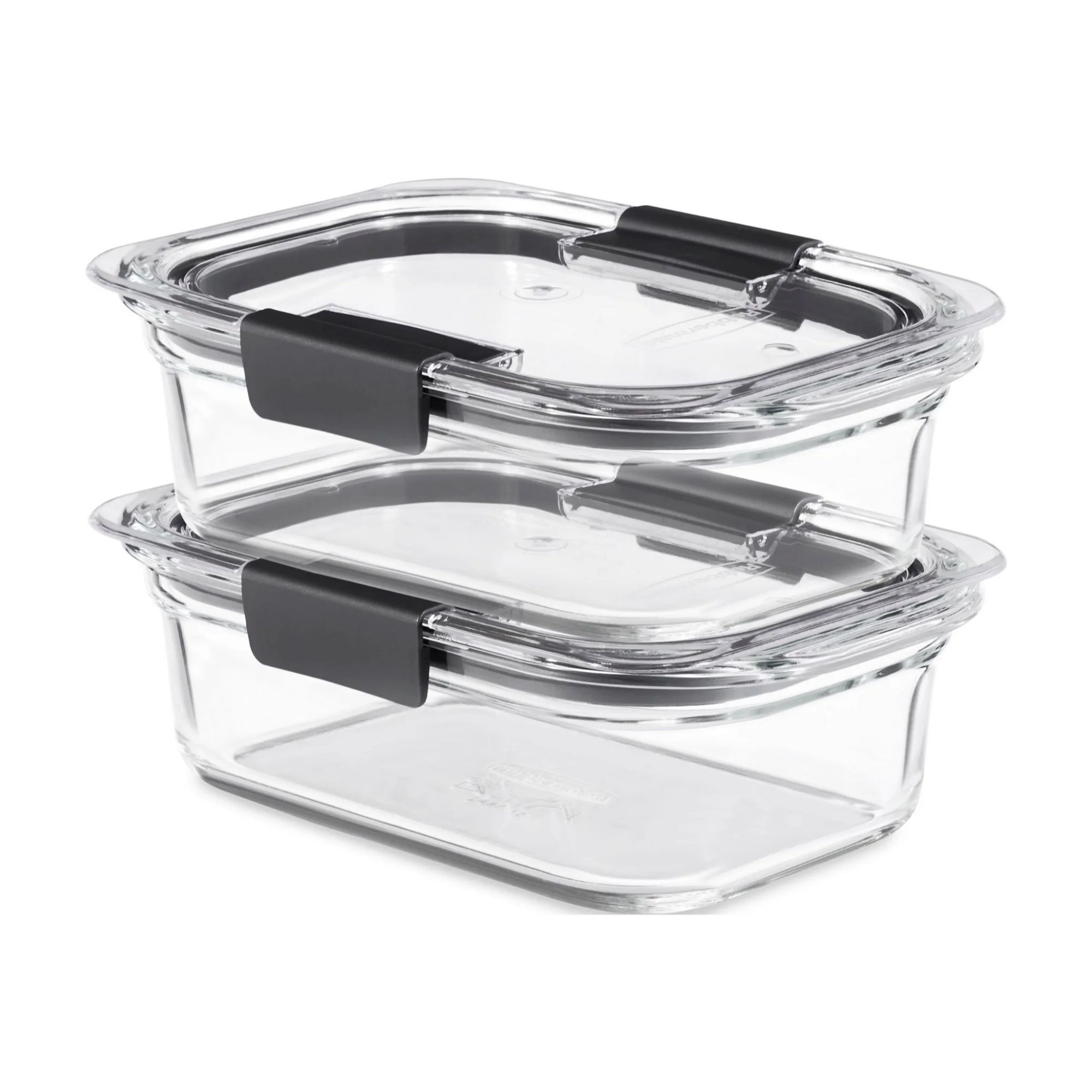
These food storage boxes come in a set of two, and are leak-proof, 100% airtight and odor and stain resistant. As they're made of glass, they can also be used in the oven and microwave, to make reheating frozen leftovers quick and convenient when being sustainable at home.
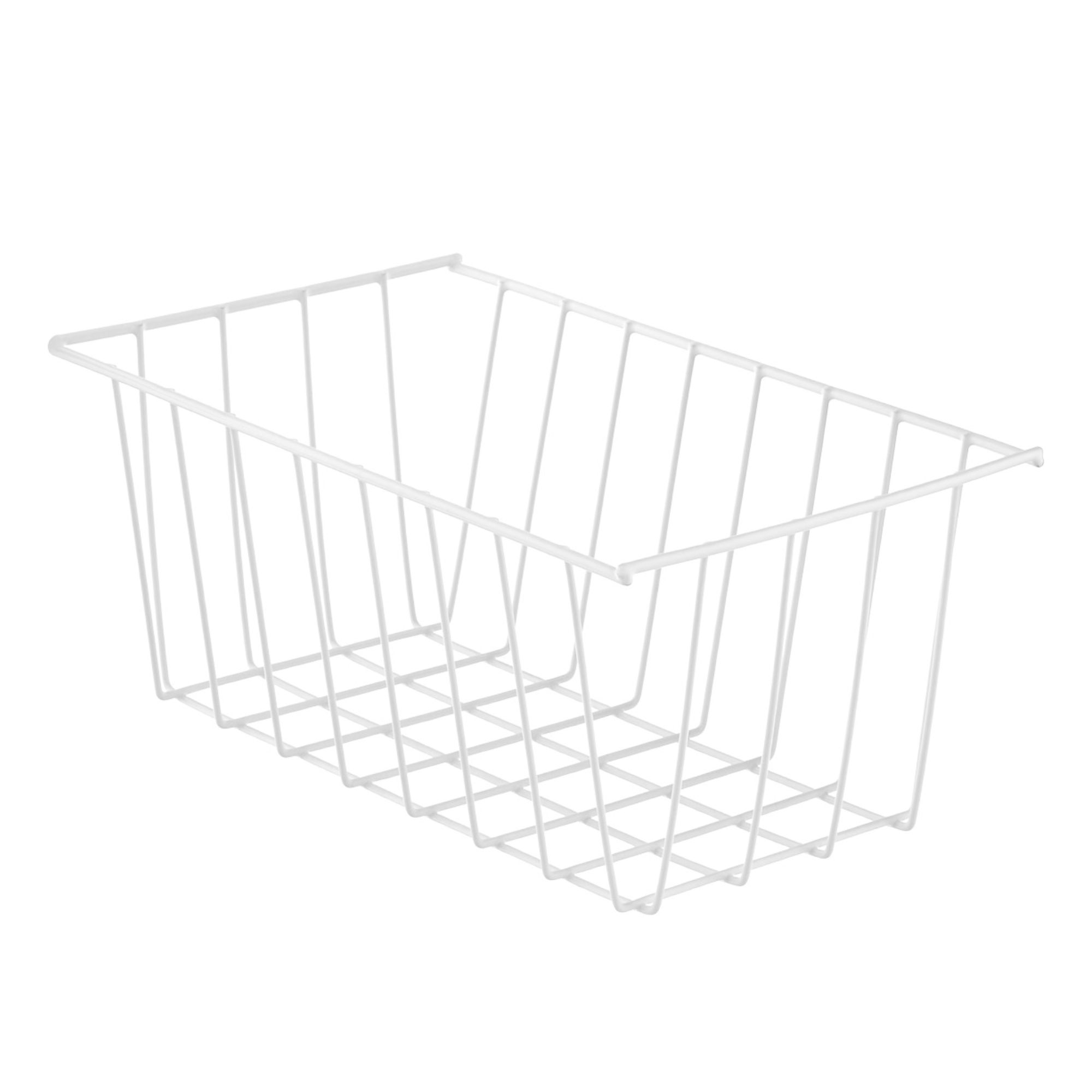
To keep packages and packets organized, this freezer basket won't scratch the interior of your freezer, and is available in two sizes to fit any standard freezer to optimize storage capacity.
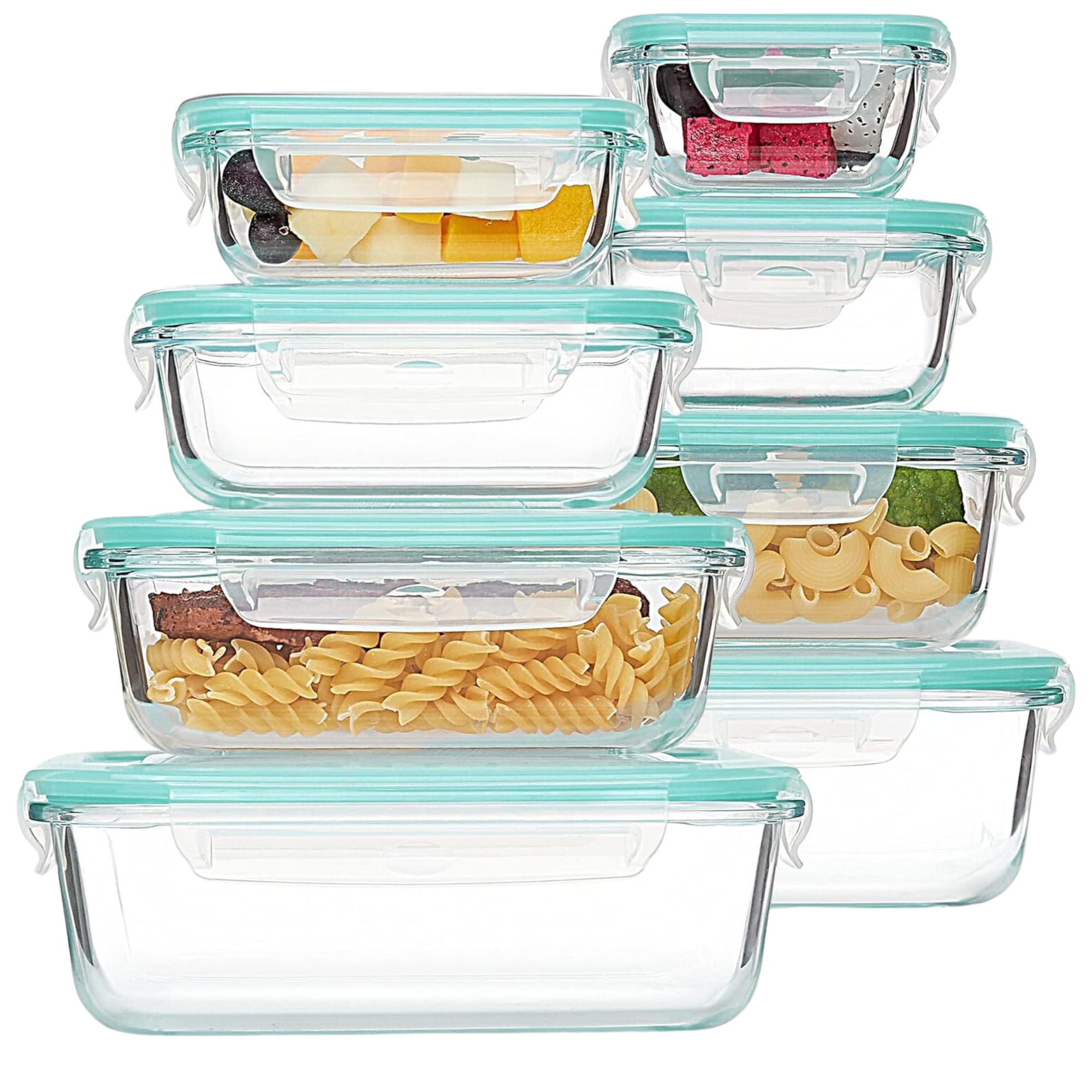
This set of eight glass storage containers are ideal to overhaul your freezer storage, as their durable and stackable, perfect for organizing a chest freezer, and dishwasher safe.
3. Toss items in haphazardly
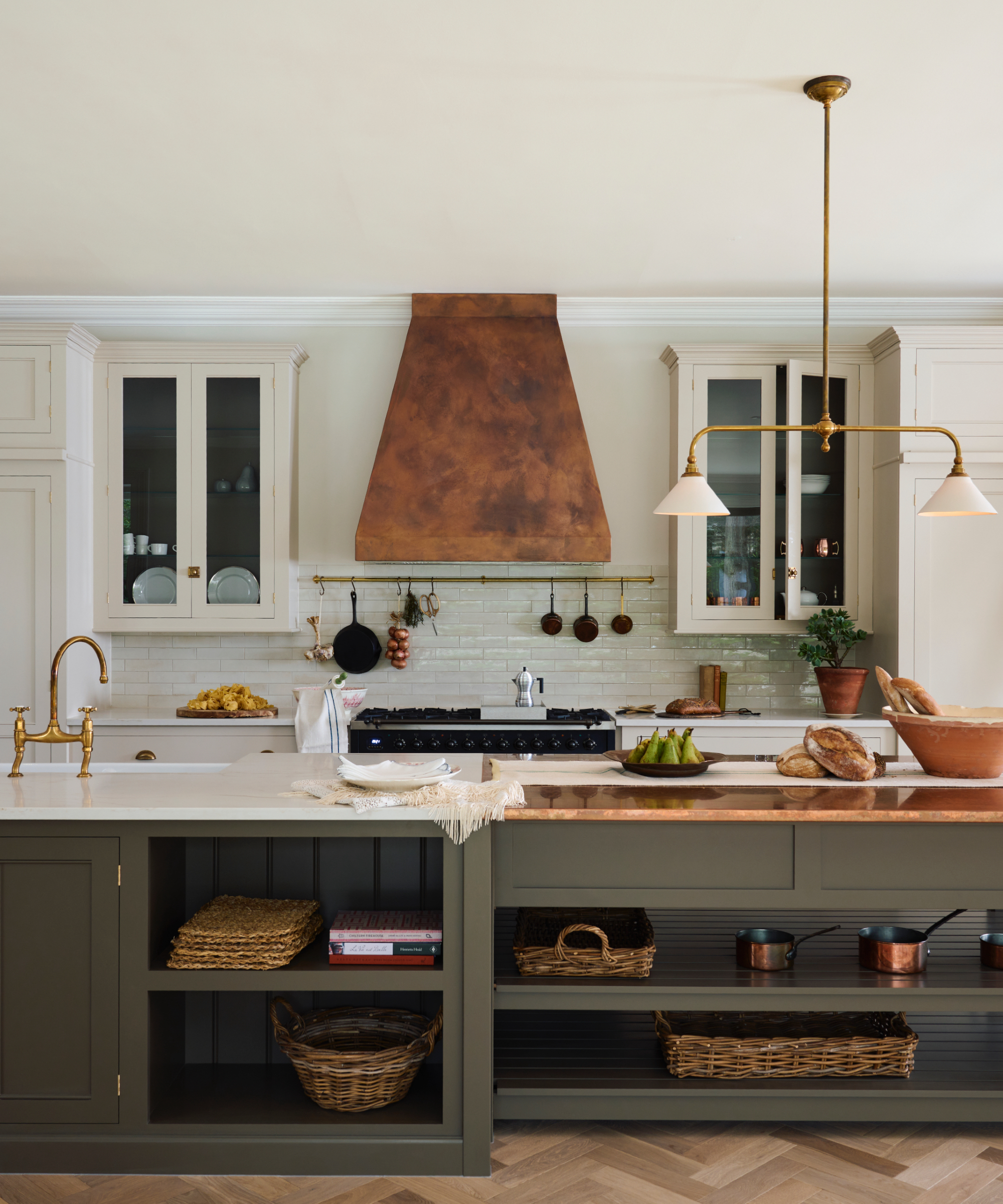
Finally, people with organized freezers never 'toss items into the freezer haphazardly,' says professional organizer Moonshine.
Instead, much like organizing a refrigerator, find a system that suits you, by organizing by expiry date, shelf position, or categories, and keep items not to store in the freezer, such as leafy vegetables, milk and eggs, elsewhere.
FAQs
Can you refreeze food after it has been defrosted?
One of the things people with organized freezers never do is refreeze food – as this can no longer be eaten and will, instead, just take up unnecessary space. Ensure you only defrost what you will need to avoid food waste, and, if it's too late, use kitchen waste in the garden to give your plants a nutrient boost and save money at home on buying compost.
Next, learn what people with organized freezers always do to replicate their success in your own home and streamline your storage.

Ottilie joined Homes & Gardens in 2024 as the News Writer on Solved, after finishing a Master's in Magazine Journalism at City, University of London. Now, as the Sleep Editor, she spends her days hunting deals and producing content on all things sleep – from mattresses and sheets to protectors and pillows, all of which she tests in her own home. She also has particular expertise in home fragrance, covering everything from candles to reed diffusers.
Previously, she has written for Livingetc and Motorsport Magazine, and also has a Master's degree in English Literature and History of Art from the University of Edinburgh, where she developed a love for inspiring interiors and architecture.